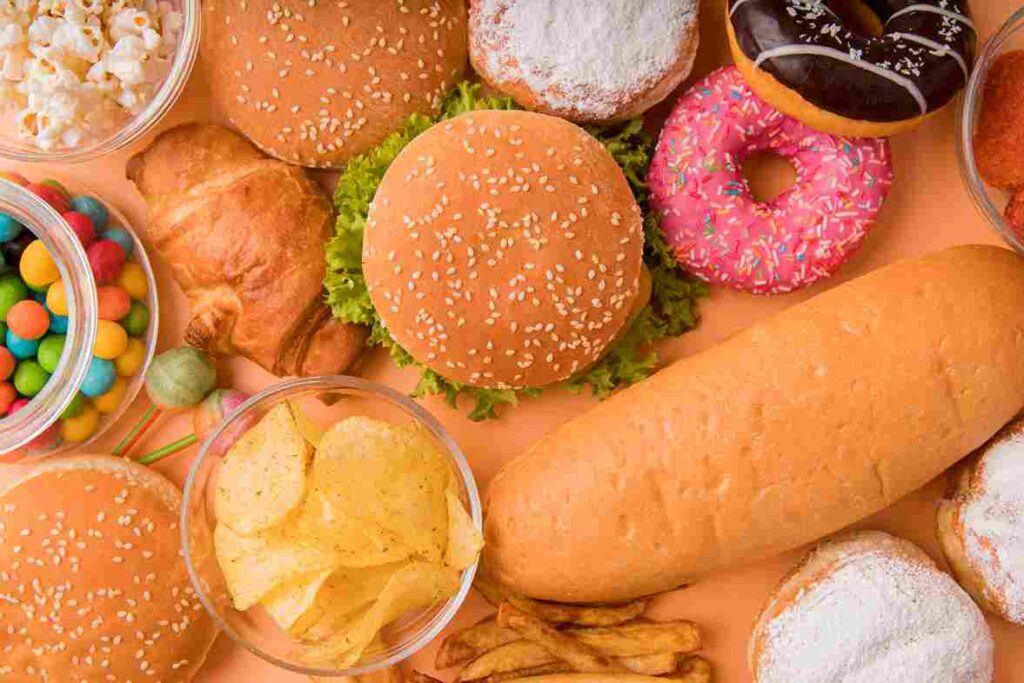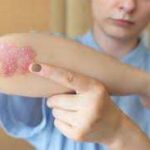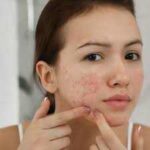Eczema Diet: What you eat has a huge impact on the severity of your eczema symptoms. Here’s what you should and shouldn’t eat if you have eczema.
Eczema, also known as atopic dermatitis, is an inflammatory skin condition categorised by skin irritation, blisters, and itchy and dry patches. Over time, it can also result in leathery skin patches.
The exact cause of eczema is not known, but it is believed to be a combination of hereditary and environmental factors. While there is no cure for eczema, it can be managed through a combination of medications and dietary and lifestyle changes, including dietary modifications.
In this blog post, we will explore dietary approaches to eczema management, including what foods to eat in eczema ( eczema diet) and what to avoid.

Eczema Diet: Foods to Eat for Eczema Management
01. Omega-3 Fatty Acids
Omega-3 fatty acids are essential fatty acids that are important for maintaining healthy skin. They are known to have anti-inflammatory properties that can help reduce eczema symptoms such as itching and redness.
Foods high in omega-3 fatty acids include salmon, mackerel, sardines, chia seeds, flaxseeds, and walnuts.
02. Probiotics
Probiotics are live bacteria and yeasts that promote healthy digestive function. They can help improve gut health, which is helpful in eczema management as the gut and skin are closely linked. Studies have shown that probiotics can help reduce eczema symptoms, especially in children. Foods that are rich in probiotics include curd or yoghurt, pickle, kombucha, and kimchi.

03. Antioxidant-rich Foods
Antioxidants can help protect the skin from damage caused by free radicals. Free radicals are unstable molecules that can damage cells and lead to ageing and disease. Antioxidant-rich foods include fruits like berries, grapes, oranges, and vegetables like spinach and broccoli.
04. Zinc
Zinc is an essential mineral that is important for skin health. It has anti-inflammatory properties that can help reduce eczema symptoms. Foods that are high in zinc include eggs, mushrooms, spinach, chicken, and pumpkin seeds.
It’s important to know that eating certain foods doesn’t cause eczema, however, it may trigger a flare-up if you already have the condition. That is why, it’s essential to stick to an eczema-friendly diet that can help manage your symptoms. Not everyone will have the same reactions or flare-ups to the same foods.
Eczema Management: Foods to Avoid in Eczema
People with eczema are often allergic to some kind of food. When a person with eczema eats something they are allergic to, it triggers an immune reaction that causes inflammation. This response can worsen an eczema flare.
Here are some common foods to avoid in eczema:
01. Dairy Products
Dairy products like milk, cheese, and yoghurt are all foods to avoid in eczema as they can trigger eczema flare-ups in some people. This may be due to the proteins and hormones found in these things, which can irritate the skin. If you suspect dairy products are triggering your eczema symptoms, try eliminating them from your diet for a few weeks to see if your symptoms improve.

02. Gluten
Gluten is a protein found in wheat and barley. Some people with eczema may be sensitive to gluten, which can trigger inflammation in the body and worsen eczema symptoms.
03. Processed Foods
Processed foods are often high in sugar, salt, and unhealthy fats. These food items can contribute to inflammation in the body and worsen eczema symptoms. Try to limit your consumption of processed foods and go for more whole foods such as fruits, vegetables, and lean proteins.

04. Alcohol
Alcohol can dehydrate the body, leading to severely dry skin and worsening the symptoms of eczema. If you drink alcohol, try to limit your consumption, and drink enough water to remain hydrated.
Conclusion
Making changes in your eczema diet can play a significant role in managing the symptoms of your condition. Incorporating omega-3 fatty acids, probiotics, antioxidants, and zinc into your diet can help reduce inflammation and improve skin health. Making these changes and monitoring the results can help a person with eczema determine whether changing their diet could help with their condition or not.
Want the best treatment for eczema? Get in touch with Ayursparsh Clinic and Panchakarma Centre, the best wellness centre in Dharwad, Karnataka. Contact Dr Rashmi Patil, an Ayurvedician who specialises in treating skin conditions such as eczema, psoriasis, acne, and fungal infection.




